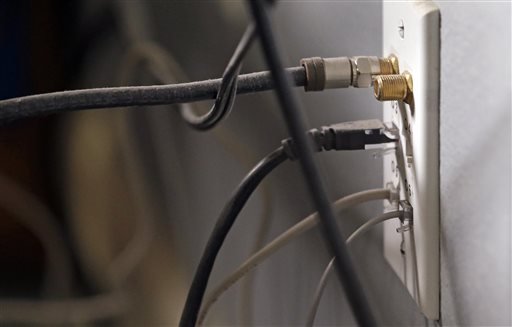by Paige Eichkorn
https://www.arkansasonline.com/staff/paige-eichkorn/
Original article from https://www.arkansasonline.com/
The Arkansas State Broadband Office met with Pulaski County Judge Barry
Hyde and other state and county representatives on Thursday to discuss new
initiatives in providing more Arkansans access to reliable internet service.
Last year, the Federal Communications Commission provided $1.4 million for
broadband services through the Infrastructure Investment and the Jobs Act.
The broadband office estimates that it will cost $800 million to provide
internet to those unserved in the state.
Currently, those living below the poverty line, the elderly, veterans, the
disabled, those formerly incarcerated, those who speak a different
language, members of a racial or ethnic minority group and those who live
in rural areas make up 87% of the state.
These are the individuals who need reliable internet the most: for
Telehealth, online school work, job applications, and government aid
programs.
The broadband office estimates that as many as 275,000 of these residents
don’t have the digital skills necessary to take full advantage of internet
services.
Libbie Dougan, a board member for Farm Bureau, said she pays $300 a month
for HughesNet, but has trouble receiving emails and doing other online work.
“Whenever I try to talk to one of my children, they go, ‘Mom I can’t hear,
you’re lagging so far behind,'” she said.
“[HughesNet] is supposed to be for people that live in the country, but
everybody around me, I’m out there where they built Amazon and all of those
places, Love’s Trucks, everybody has their own energy but nobody will hook
me on.”
Dougan said she may consider joining the county broadband committee.
The Arkansas Rural Connect Grant Program funds eligible projects through an
application process.
The most recent awards were finalized in February and the office expects to
continue the program with additional funding provided by the Infrastructure
Investment and Jobs Act.
Although an estimated 72,000 households are eligible for assistance through
the Affordable Connectivity Program, only 21,626 households have enrolled.
Hyde said broadband services have been introduced before, but he was
disappointed in how the county fared.
“This is such a basic need in today’s world,” he said. “And the folks who
need that the most are the ones who were underserved — I’m not going to
give you a long speech about how interconnected the other problems we have
in our community are with these underserved communities, with the basic of
necessities, and I’m not gonna say this is just as important as water, but
it’s a pretty damn close second.”
Glen Howie, state broadband director, said it’s an access, affordability
and digital skills issue for most of the state.
“We have to attack all three issues at the same time with the same sense of
urgency to accomplish that,” he said.
“The next big wave of funding for Arkansas as it relates to broadband is
going to come through the infrastructure bill. Specifically two buckets of
money, one dedicated to infrastructure and one dedicated for digital
opportunity programs. As part of developing these final plans for Arkansas,
the state office filters the best way to produce the best plans that we can
use to work through our local communities.”
Howie said the broadband office knows that not “one size fits all,” and
community partners can be at the forefront of developing plans that are
flexible to local residents.
Anyone is invited to be on the county broadband committee.
Heartland Forward, Winrock International, Arkansas Black Mayors Association
and Communities Unlimited will be hosting focus groups to hear from the
community in the near future.
The first one will be June 15 at 9 a.m. at the Hillary Rodham Clinton
Children’s Library & Learning Center, 4800 W. 10th St, Little Rock.

